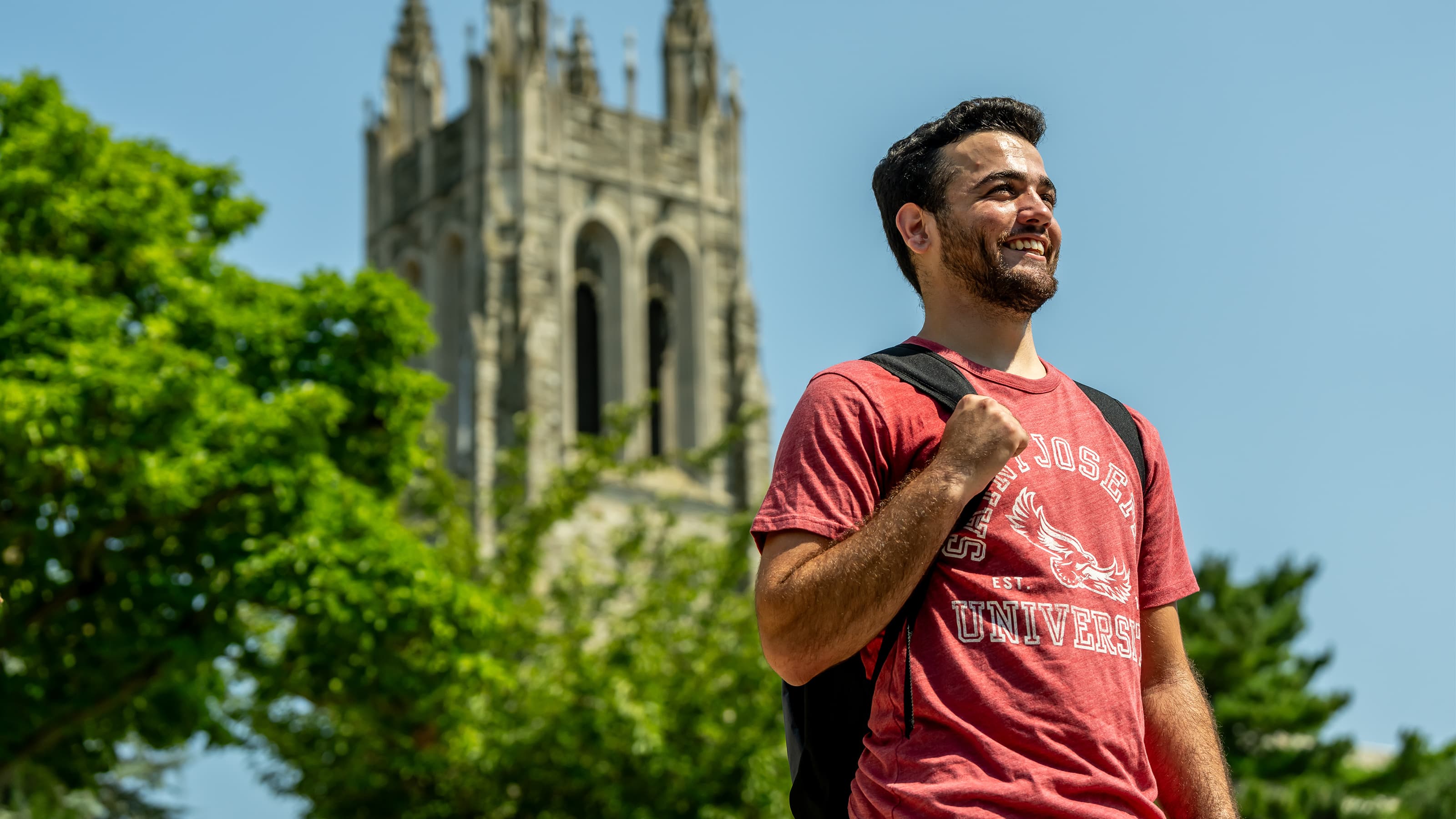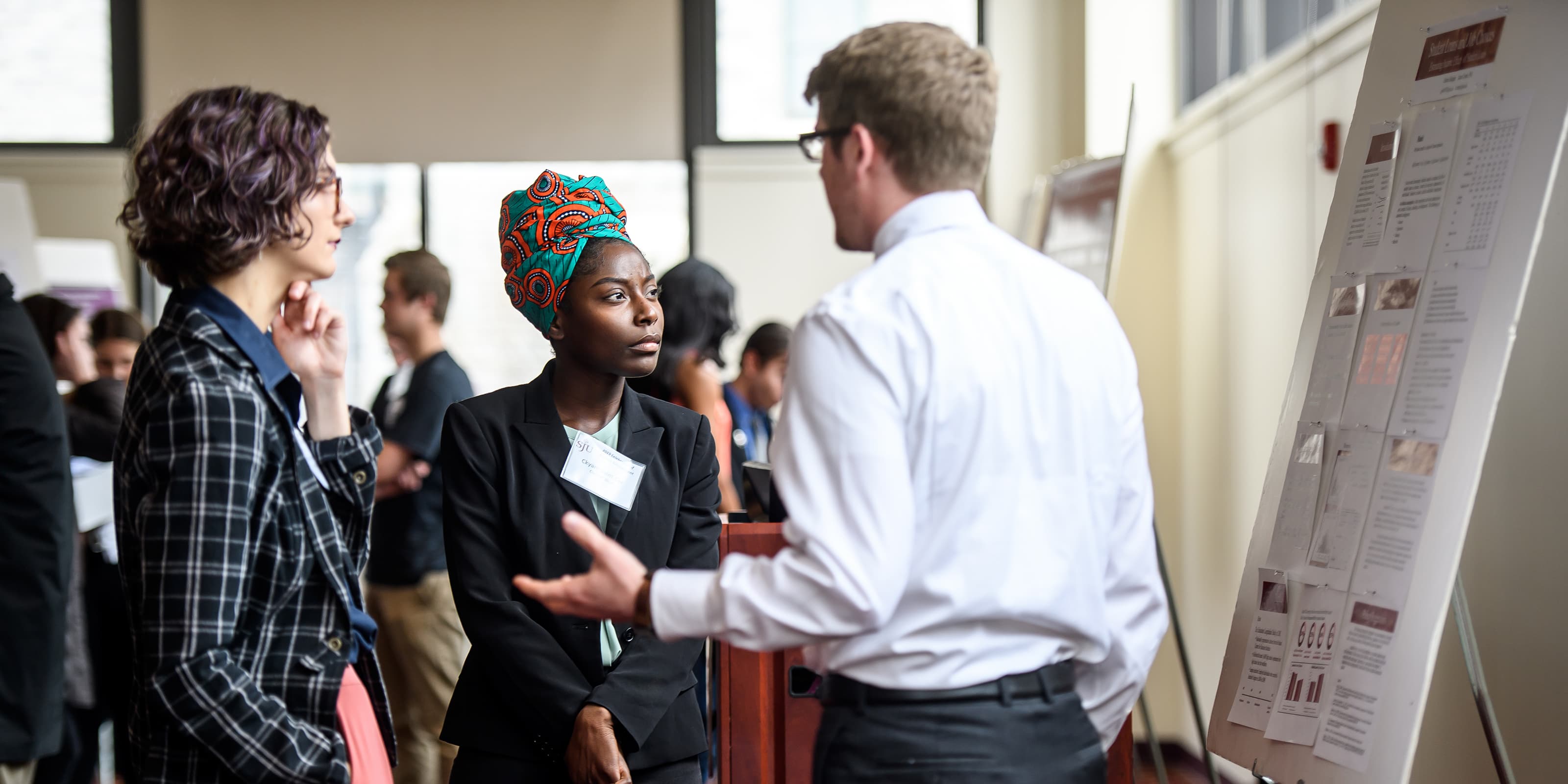History Major Investigates the Convenience of Conspiracy Throughout the Pandemic
Ryan Mulligan ’23 recently embarked on Summer Scholars research into how coronavirus conspiracy theories are affecting the political relationship between the United States and the People’s Republic of China.

Throughout the COVID-19 pandemic, the world overflowed with conspiracy theories that ran the gamut of topics — from the U.S. government’s malicious intentions with its health and safety guidelines to celebrities like Bill Gates being responsible for the virus’s transmission. It seemed no theory was too far-fetched to gain traction on the internet.
At the onset of the pandemic, the media reported the virus had allegedly been transmitted to humans through one woman’s consumption of a bat sold at an open air market in Wuhan, China. The U.S. and China were already on rocky ground politically and as COVID-19 made its way across the globe, that relationship took on even more negativity as new conspiracies were threaded together. Namely, that this particular coronavirus was not transmitted by accident — it was an intentionally designed bioweapon leaked to the general population from a Wuhan lab to wreak havoc on a global scale.
“It’s a really interesting combination of topics — we’re looking at epidemiology, history and political science all in one,” remarks Ryan Mulligan ’23, a history major who recently embarked on Summer Scholars research into how coronavirus conspiracy theories are affecting the relationship between the United States and the People’s Republic of China. “There are many aspects of international relations in this topic as well, which makes it quite exciting.”
While this project is very much still developing, Mulligan plans to investigate not only the international implications of this theory, but also the reasons why people tend to gravitate toward these stories.
“The thing about conspiracy theories is that they completely eliminate the concept of coincidence,” notes Mulligan. “According to political scientists and psychologists, people take comfort in being able to rationalize the world around them in this way.”
The thing about conspiracy theories is that they completely eliminate the concept of coincidence . . . people take comfort in being able to rationalize the world around them in this way.
Ryan Mulligan '23
Mulligan goes on to explain that some experts think belief in conspiracy is more linked to distrust and non-clinical paranoia. Historians give credit to this assessment, noting large government cover-ups and a lack of government transparency in the past. In the end, it could be argued that the belief in conspiracy is understandable.
Throughout the summer, Mulligan and his faculty advisor, James Carter, Ph.D., interim dean of the College of Arts and Sciences and professor of history, will work to examine the lab leak and bioweapon conspiracy theories and their implications on international relations between the U.S. and China as part of Saint Joseph’s Summer Scholars program.
Summer Scholars provides support for currently enrolled undergraduates and students in five-year B.S. and M.S. programs, to engage in faculty-mentored research exploring scholarly endeavors during the summer months.
Carter, who is a celebrated scholar on China’s modern history, notes that Mulligan’s research will be ongoing and will likely change over the course of the next few decades.
“Ryan’s work is very timely,” notes Carter. “The relationship between the U.S. and China is more important than ever, but it’s also in worse shape than it has been since 1979.”
The United States and China were never considered allies but the relationship between the two has been particularly sour in recent years — though the two countries are more economically interconnected than ever before, political upheaval in Hong Kong and a rampant trade war have escalated tensions between the countries.
“This pandemic has definitely contributed to that bitterness,” says Mulligan. “The narrative in the U.S. is that China mishandled the outbreak, so there has been a lot of finger-pointing from the get-go, which only adds weight to the origin story conspiracy theories.”
“The lab leak theory has become caught up in general American attitudes toward both China and domestic politics and the important aspects of finding the source of COVID-19,” agrees Carter.
Carter notes that, what should be considered a scientific evaluation to help society prepare for future pandemics has been overshadowed by these conspiracy theories, which have largely drowned out the importance of these scientific investigations with political agendas and preconceptions.
“Ryan's project fits the current understanding of coronavirus and its origins into the history of American conspiracy theories and politics,” Carter says. “This entire situation gives us ways to think about the reasons this debate has moved beyond the realm of science and into that of politics and social psychology.”
This summer, Mulligan ultimately aims to produce an analytical paper on why people believe in conspiracy theories and how they are affecting international relations between the U.S. and China, which he knows will evolve as new studies and political decisions crop up.
Read more about our 2021 Summer Scholars:



